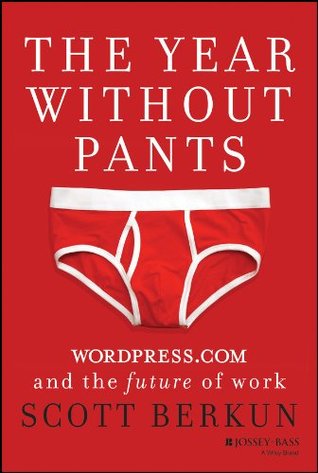More on this book
Community
Kindle Notes & Highlights
by
Scott Berkun
Read between
October 4 - October 8, 2016
The inability to scale is one of the stupidest arguments against a possibly great idea: greatness rarely scales, and that's part of what made it great in the first place.
But the past is unevenly distributed in the present too. At the same time we have poor families working on farms with their bare hands, urban organic chefs are heralded as innovators for using rustic cooking methods and college dropouts get venture capital funding for start-ups based on the centuries-old concept of to-do lists. There are so many kinds of work and the notions of the past and future are so circular that only a fool would confidently predict what's next.
The problem with modern work, and one that sheds light on the future, is how loaded workplaces are with cultural baggage. We faithfully follow practices we can't explain rationally. Why is it that work has to start at 9:00 a.m. and end at 5:00 p.m.? Why are you required to wear a tie if you're a man and a skirt if you're a woman? Why are meetings sixty minutes long by default, and not thirty?
Schneider and Mullenweg went to great lengths to keep support roles, like legal, human resources, and even IT, from infringing on the autonomy of creative roles like engineering and design. The most striking expression of this is that management is seen as a support role. The company stays as flat as possible for this reason.
While few established companies can choose to become completely distributed, the distribution of Automattic, among its other interesting attributes, begs the question: What assumptions do you have about your organization that hurt you? And what experiments are you doing to discover them and find better ways to work?
I never did figure out if he was good at so many things because of his enthusiasm or if he enthusiastic about things because he was good at them.
Being a good lead is all about switching hats: knowing which level of abstraction to work at to solve a problem. It's rarely a question of intelligence; instead, it's picking the right perspective to use on a particular challenge.
When I was hired, I paid attention to how Mullenweg commented on discussions on various P2s. He frequently linked to charts and tables relevant to the discussion. Although he was not using these as a hammer to end arguments, he regularly referred to data as part of his thinking. He wanted a data-influenced culture, not a data-driven one.
Laughter leads to running jokes, and running jokes lead to a shared history, and a shared history is culture.
If someone suggests thirty-minute instead of sixty-minute meetings, what is there to lose? If the experiment fails, you end it and try another.
Despite constant complaints about endless piles of e-mail in the business world, there is a fatalism about alternatives.
Jerry Hirschberg, the former head of design for Nissan, had a theory of work he called Creative Abrasion.1 He believed you need the right amount of friction for good work to happen—not too much and not too little—and that few managers get it right. Worse, they don't know what to aim for, having never experienced a healthy creative workplace.
Of course, if you're designing and manufacturing a nuclear-powered submarine, you need more project management rigor than if you're making a website for your friend's rock band, but few calibrate the frictions they create to the needs of the project.
Methodologies are often another bad friction that managers impose, putting more faith in a bunch of rules than in the people they've hired. I'd take a great team with bad methods over a lousy team with great methods any day.
Mullenweg clarified the importance of the project, and as a good leader should, he offered whatever resources I needed. It's a great bullshit test of any boss who says, “X is important.” If she doesn't match that statement with resources, she's incompetent, insincere, or both. If it's important, prove it. Importance is always relative to other projects, not verbal fairy dust to sprinkle over your staff.
The deal at Automattic was centered on quality of life, not just the quality of life while at work.
But regardless of finances, Automatticians recognized they had more freedom over their time than the rest of the working world, perhaps the most important compensation there is.


